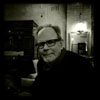2015 Wangaratta Festival of Jazz and Blues
This year's Wangaratta Festival delivered two outstanding performances of extended works composed for large ensembles: Dave Douglas's suite Fabliaux and Lloyd Swanton's Ambon, inspired by his uncle's experiences as a prisoner of war from 1942–45.
American trumpeter Dave Douglas has been a leading figure in jazz since the early 1990s, when he first rose to prominence as a member of John Zorn's Masada quartet. A restless musician, he has fronted numerous ensembles, and recorded prolifically, most recently for his own Greenleaf label. It was his guest appearance at the Adelaide Festival, in March 2014, as part the John Zorn concert series, that afforded Douglas the opportunity to engage in a collaborative project with the Monash Art Ensemble; and his extended composition Fabliaux for four ensembles, written expressly for the project, was rehearsed and performed, then subsequently recorded, during that visit.
Continue reading for only $10 per month. Subscribe and gain full access to Australian Book Review. Already a subscriber? Sign in. If you need assistance, feel free to contact us.















Leave a comment
If you are an ABR subscriber, you will need to sign in to post a comment.
If you have forgotten your sign in details, or if you receive an error message when trying to submit your comment, please email your comment (and the name of the article to which it relates) to ABR Comments. We will review your comment and, subject to approval, we will post it under your name.
Please note that all comments must be approved by ABR and comply with our Terms & Conditions.